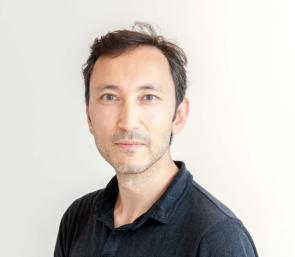
Generative improvisation
INFORMATIONS
-
Objectives and content
Generative Improvisation is a form of free improvisation based on the principles of listening and instant musical invention. It is not based on any particular musical style or idiom, although questions of individual and collective memory are raised, and there are many links with traditional and improvised music.
The Generative Improvisation class is aimed at instrumentalists and singers wishing to diversify their practice by developing their capacity for musical invention. By accumulating experience and reflecting on notions specific to improvisation, the student should be able to cope with numerous situations while asserting the specificitý of their own musical experience.
- Development of each musician's inventive potential in contexts of collective or individual improvisation.
- Awareness of sound phenomena through complementary ear training.
- Broadening of the instrumental or vocal technique through confrontation with other modes of playing (instrumental, vocal, gestural, etc.).
- broadening of instrumental or vocal technique through exposure to new real-time sound processing techniques
- a practical and theoretical approach to innovative forms of concert (performances, musical theatre, multimedia)
- practical and theoretical approach to working with other forms of artistic expression (dance, film, video, etc.)
Collective improvisation workshop in small or large groups
New technologies workshop and control of sound processing in real time (individual or small group improvisation)
Workshop on the study of improvisational forms and structures (knowledge of current trends, in relation to composition, contemporary music and artistic creation in general)
Didactics of improvisation, exercises.
In addition to the usual course content, numerous meetings and interventions are organised with theatre and dance groups and artists from the visual arts world.
-
Entrance terms and conditions
The class is open by competitive entrance examination to students currently studying at the CNSMDs of Lyon and Paris (instrumental, vocal or theoretical disciplines), except for ERASMUS/EUJAM exchange students, and to those who have completed their studies in the school year prior to enrolment.
The application form must include
- a curriculum vitae ;
- a letter of motivation.
Deadline for applications: 1 week before the test.
To be sent by e-mail to eronce-kaddoura@cnsmdp.fr
Test dates: 6 October 2023
Admission :
1 - Written test (non-eliminatory): 10.00-12.00, Salle Emmanuel
Perceptive" analysis of musical extracts in the form of recorded or written documents.
The aim is to assess the student's :
- their ability to recognise (at an elementary level) the morpho-typological qualities of sound (dynamic forms, mass, grain, variation in timbre, etc....);
- secondly, knowledge of how all kinds of music work (instrumental or electroacoustic, from different periods and traditions).
2 - Instrumental or vocal tests: 14:00-18:00, Stage 3 + Stage 2 (warm-up)
Solo improvisation test (free and compulsory) followed by an interview with the jury (20' maximum); collective improvisation test (10 to 15').
-
Assessment terms and conditions
Control examinations LEVEL 1
Consists of :
- continuous assessment mark: quality of participation and progress and a presentation on a personal subject, with practical work during the year.
- a 10-minute personal project on a subject chosen by the candidate in consultation with the teachers. Through improvised sequences, the candidate must construct a musical form that can draw on other disciplines and/or new technologies.
- A compulsory test common to all candidates (subject given at the time of the test: improvisation with tape, with video, based on a text, etc.) before a jury.
Reward Level 1: Mention Très bien, Bien, Assez bien.
- the mention Très bien and the mention Bien, if the latter is accompanied by a test mark equal to or higher than 13/20, allow the student to move on to level 2.
- mention Bien (with a test mark of less than 13/20) or mention Assez bien (with a test mark of 8/20 or more) means repeating level 1.
- A grade of Assez bien with a test mark of less than 8/20 means that the course is interrupted in the1st or2nd year.
Final examination LEVEL 2
Public examination - Duration: 40 minutes maximum.
- Personal project" test. This is an implementation of the student's personal orientation; it may be multidisciplinary, using means of expression other than the instrument, etc. External artistic or technical participation is authorised, at the candidate's own expense, after informing his or her teachers. Duration: approximately 20 minutes.
- Writing of a programme note outlining, for example, the specific nature of the personal project and the artistic background of the candidate improviser.
- Solo improvisation. Approximately 10 minutes
- Compulsory improvisation. Subject given before or at the time of the test, depending on its nature.
- Free ensemble improvisations (heterogeneous formations).
Level 2 prize: Generative Improvisation Prize.
- the distinction Très bien, Bien or Assez bien is awarded by the jury at the end of the prize examination.
-
Duration of studies
2 or 3 years maximum
-
Reward
Reward
-
Erasmus
No


